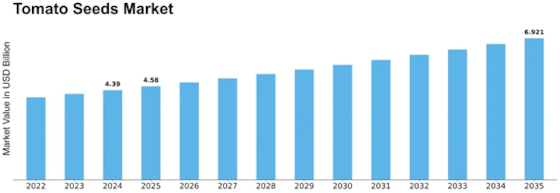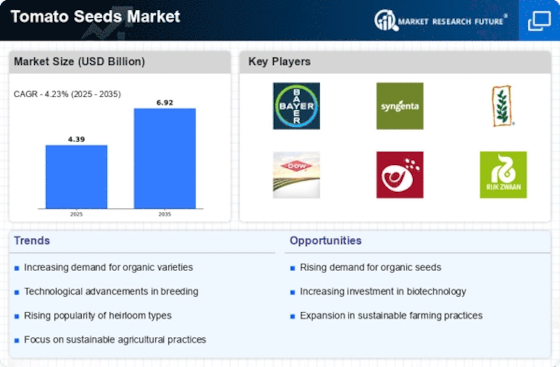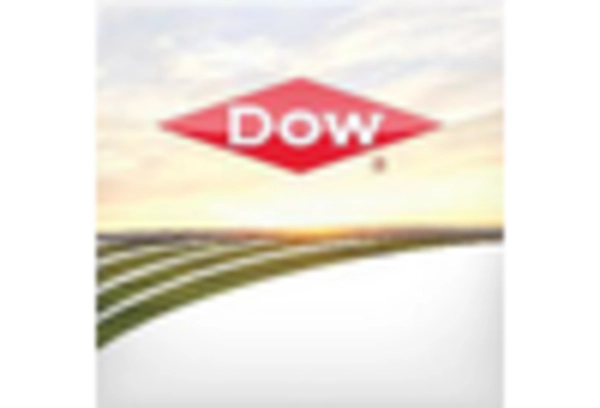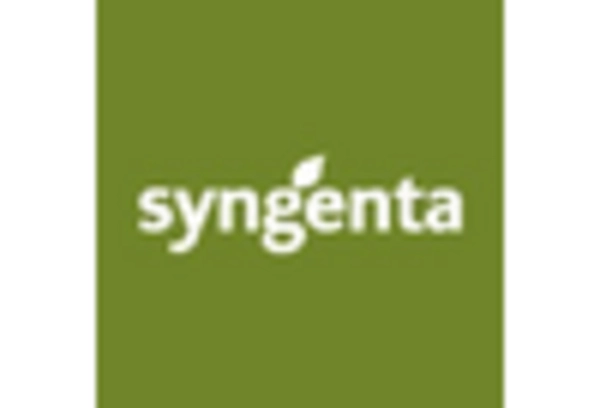Tomato Seeds Size
Tomato Seeds Market Growth Projections and Opportunities
tomato seeds market is undergoing significant changes influenced by various factors such as advancements in breeding technologies, shifts in consumer preferences, changing climatic conditions, and evolving pest and disease pressures.
Advancements in breeding technologies are playing a crucial role in shaping the market dynamics of the tomato seeds industry. Breeders are constantly developing new varieties of tomatoes with traits such as disease resistance, higher yield potential, improved shelf life, and enhanced flavor profiles. These advancements enable farmers to meet the evolving demands of consumers and adapt to changing environmental conditions. Additionally, biotechnological techniques such as marker-assisted selection and genetic engineering are being used to accelerate the breeding process and introduce desirable traits into tomato varieties. As a result, there is a growing availability of diverse and high-performing tomato seed varieties in the market.
Moreover, shifts in consumer preferences are driving changes in the tomato seeds market dynamics. Consumers are increasingly demanding tomatoes that are flavorful, nutritious, and visually appealing. There is also a growing interest in specialty and heirloom tomato varieties with unique colors, shapes, and flavors. To meet these demands, seed companies are focusing on breeding tomatoes with superior taste, texture, and appearance. Additionally, there is a rising demand for organic and non-GMO tomato seeds as consumers become more conscious of food safety and environmental sustainability. These shifting consumer preferences are influencing the selection and breeding of tomato varieties and driving innovation in the seed industry.
Changing climatic conditions are also impacting the market dynamics of the tomato seeds industry. Climate change is leading to more extreme weather events, such as heatwaves, droughts, and heavy rainfall, which can affect tomato production and quality. Breeders are developing tomato varieties that are more resilient to abiotic stresses such as heat, drought, and waterlogging. These climate-resilient varieties help farmers mitigate the risks associated with unpredictable weather patterns and maintain stable yields even under adverse conditions. Additionally, there is a growing emphasis on developing tomatoes with improved disease resistance to combat emerging pests and pathogens exacerbated by climate change.
Furthermore, evolving pest and disease pressures are shaping the market dynamics of the tomato seeds industry. Pests and diseases pose significant challenges to tomato production, leading to yield losses and quality defects. Breeders are breeding tomatoes with enhanced resistance to common pests and diseases such as tomato mosaic virus, fusarium wilt, and tomato spotted wilt virus. Additionally, there is a growing interest in biological control methods and integrated pest management strategies to reduce reliance on chemical pesticides. Seed companies are investing in research and development to breed tomatoes with built-in resistance to pests and diseases, providing farmers with more sustainable and cost-effective solutions for crop protection.
Despite the opportunities and advancements, the tomato seeds market also faces challenges and constraints. One challenge is the increasing consolidation and concentration of the seed industry, with a few large multinational companies dominating the market. This consolidation can limit competition, reduce genetic diversity, and restrict access to affordable seeds for small-scale farmers. Additionally, there may be concerns about the potential impact of genetically modified (GM) tomato varieties on human health and the environment, leading to regulatory barriers and consumer resistance in some markets.



















Leave a Comment